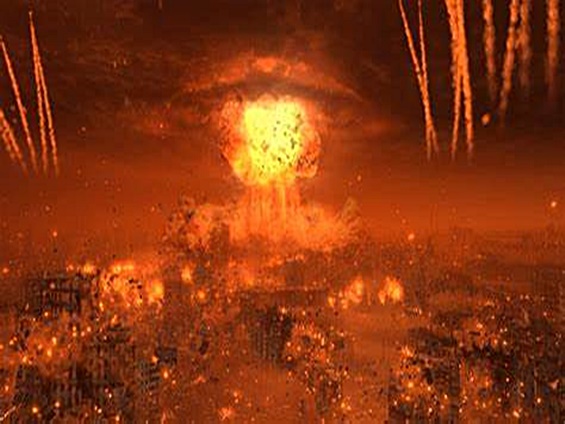The potential causes of a hypothetical World War Three are complex and multifaceted, reflecting the intricate and interconnected nature of global politics, economics, and security. While it’s impossible to predict with certainty, here are some plausible scenarios and factors that could contribute to the outbreak of a major global conflict today:
Geopolitical Tensions
- US-China Rivalry: The competition for global dominance between the United States and China, particularly over issues like trade, technology, and influence in the Asia-Pacific region, could escalate into direct military conflict. Disputes over Taiwan and the South China Sea are particularly sensitive flashpoints.
- Russia-NATO Conflicts: Tensions between Russia and NATO, especially in Eastern Europe, could escalate. The ongoing conflict in Ukraine and NATO’s expansion could provoke a broader confrontation.
- Middle East Conflicts: Ongoing tensions in the Middle East, involving countries like Iran, Israel, Saudi Arabia, and various non-state actors, could draw in major powers and lead to a larger regional or even global conflict. The Iran-Saudi rivalry, as well as Israel’s security concerns, are particularly volatile.
Nuclear Proliferation and Arms Races
- Nuclear Arms Race: The modernization and expansion of nuclear arsenals by major powers like the US, Russia, and China, as well as emerging nuclear states like North Korea, increase the risk of a nuclear conflict either by accident or design.
- North Korea’s Nuclear Ambitions: North Korea’s continued development of nuclear weapons and ballistic missiles poses a significant threat to regional stability in East Asia, which could draw in the US, China, Japan, and South Korea.
Cyber Warfare and Technological Competition
- Cyber Attacks: Major cyber-attacks on critical infrastructure (e.g., power grids, financial systems, military networks) by state or non-state actors could be perceived as acts of war, leading to retaliatory strikes and escalation.
- Space Warfare: The militarization of space, including anti-satellite weapons and space-based missile defense systems, could trigger conflicts as nations vie for dominance in this new frontier.
Economic Crises and Resource Competition
- Resource Scarcity: Competition for critical resources like water, oil, and rare earth minerals could lead to conflicts, particularly in regions where resources are scarce and tensions are already high (e.g., Africa, Middle East, Arctic).
- Economic Sanctions and Trade Wars: Prolonged economic conflicts, such as trade wars and sanctions, could severely damage international relations and lead to military confrontations, especially if one side feels cornered or economically strangled.
Nationalism and Populism
- Rise of Nationalism: The rise of nationalist and populist movements worldwide can lead to aggressive foreign policies, as leaders may use external conflicts to bolster internal support. That being said, populist movements can stabilize economies and immigration concerns thus promoting a docile nation.
- Territorial Disputes: Long-standing territorial disputes, such as those between India and Pakistan over Kashmir, China and its neighbors in the South China Sea, and various border disputes in Africa and Asia, could ignite broader conflicts.
Environmental and Health Crises
- Climate Change: Extreme weather events, sea-level rise, and resource scarcity driven by climate change could exacerbate existing tensions and lead to conflicts over migration, food, and water security.
- Pandemics: Global health crises, such as pandemics, can strain international relations, disrupt economies, and lead to conflicts over resources, vaccines, and medical supplies.
Breakdown of International Institutions
- Weakening of International Norms: The erosion of international institutions like the United Nations and treaties designed to maintain peace and security (e.g., arms control agreements) could lead to a breakdown in the global order and increase the likelihood of conflicts.
- Alliances and Blocs: The formation of competing military and economic blocs could lead to polarized global politics reminiscent of the Cold War, where miscalculations and alliances could drag nations into a larger conflict.
Summary
While these scenarios highlight potential causes of a global conflict, it is important to note that significant diplomatic, economic, and military efforts are continually being made to prevent such an outcome. The international community generally recognizes the catastrophic consequences of a world war, especially with the presence of nuclear weapons, and strives to manage and mitigate these risks through various means of conflict resolution and cooperation.










